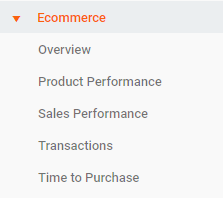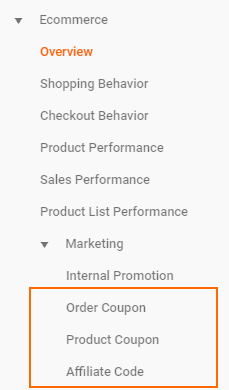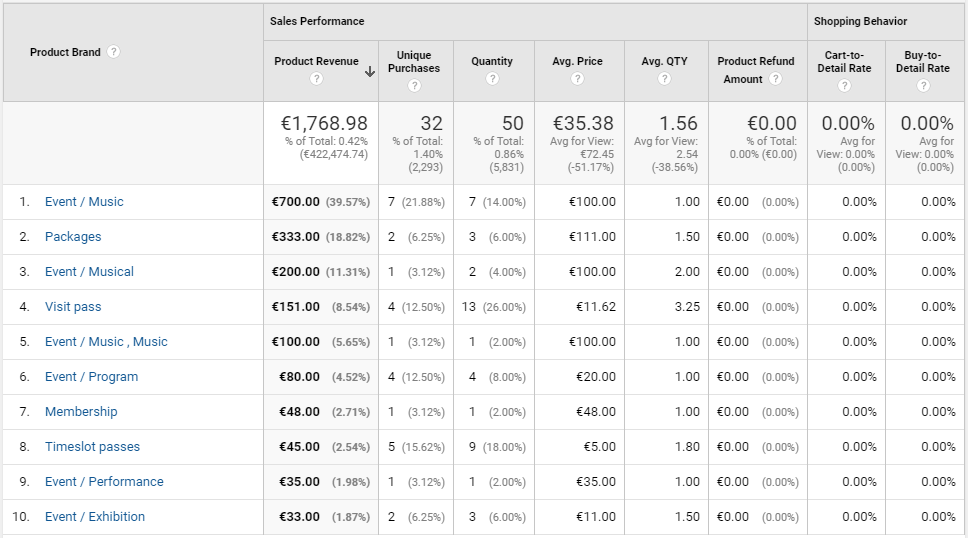Enhanced E-commerce Tracking is finally here! Offering deeper insights and more accurate tracking data of online shopping engagement, Google Analytics. Enhanced E-commerce is a complete revamp of its traditional e-commerce tracking in the sense that, it provides many more ways for you to collect and analyze users' e-commerce data throughout their entire online shopping journey. Therefore SecuTix Web Team are thrilled to announce our first milestone of Enhanced E-commerce Tracking support, which is also the most important one, support for more fine-grained transaction data tracking whenever users make a purchase through your online ticket shop.
Prerequisite
Please note that our Enhanced E-commerce Tracking is only supported if you are using Universal Analytics tracking and Google Tag Manager.
What's New?
New Google Analytics Reports
If you activate Enhanced E-commerce in your Google Analytics Admin page, you will notice that Google now offers double the number of e-commerce reports compared to traditional e-commerce. However those new reports need the corresponding data to be properly tracked on the ticket shop side. With your best interests in mind, our goal is to track and send more detailed user online shopping engagement data in order to enable these new enhanced e-commerce reports one by one. With the release of Whymper V2, a first set of the new reports, including Order Coupon, Product Coupon, Affiliate Code and Product Brand reports, will finally be filled with the correct data!
| Traditional E-commerce | Enhanced E-commerce |
Measuring External Marketing Effort and Coupon Usage
Do you ever wonder the following questions? How are my coupons (either at a product level or an order level) being used by online customers? How effective are these coupons? How often are they being used?
You can now have a more insightful understanding on how well each of your promotional codes and advantages performs through the Order Coupon, Product Coupon reports. Order Coupon report groups and compares the sales by the promotional code used by the user at order-level (on Order Summary Page). Product Coupon report provides the same insights but for advantages used at the product-level. Both reports help you measure your external marketing effort in promoting the coupons and advantages and understand how they are used by users. Analyzing the data could also help you take necessary actions to improve the performance.
Order Coupon Report Example
Product Coupon Report Example
Comparing Sales Performance Among Multiple Online Shops
Besides measuring coupon usage, the new Affiliation report offers a way to easily compare sales performance among multiple online shops, if you have more than one configured.
Affiliation Report Example
Measuring Sales Performance At The Product Family and Topic Level
The traditional e-commerce report offers sales performance comparison at the product level. But sometimes in order to observe the trend, it is also important to compare things at an aggregate level. The new Product Brand report is there to answer this need. Note that the brand of a ticket shop product is defined as "Product Family Type / Topic (if configured)". This report provides you possibilities to track e-commerce success of different product family and topic combinations and take actions if necessary.
Product Brand Report Example
New DataLayer
With the support of enhanced e-commerce data tracking, more accurate and detailed transaction data are added to the DataLayer, which is pushed every time when an online user pays for an order successfully and reaches the Order Confirmation Page.
On top of existing e-commerce data, the following new information are now tracked:
- Tax - the tax (VAT) amount of the order
- Order Coupon - the promotional code used by user to get a order-level discount on the Order Summary Page
- Product Brand - information about product family type and topic of the product if a topic configured
- Product Variant - information about the cross-selling type (including up-selling, cross-selling, cross-selling via one click, hit offer, post-selling) and ID of the parent product if a product is purchased via cross-selling
- Product Coupon -information about the advantage if a purchased product has an advantage
Not only are these new data needed by Google Analytics, other 3rd-party tracking tools (integrated via GTM) can also exploit and make use of them in order to obtain deeper insights about users' e-commerce engagement behavior.
There are also some fields that exist in traditional e-commerce that are now further improved in the enhanced e-commerce tracking:
- Transaction ID - we are now using an order's File ID instead of Order ID as File ID is a more accurate reference for operations like order refund, cancellation, pay for a reservation, etc.
- Affiliation - instead of using the institution code, we are now tracking the associated organization code and point of sales code of the corresponding online ticket shop in order to help you easier compare the sales performance across multiple online ticket shops, if you have more than one organizations or online ticket shops configured.
For a full definition of the new DataLayer structure, please refer to the example below.
How to Activate Enhanced E-commerce Tracking?
Activating and migrating to Enhanced E-commerce Tracking can be a rather delicate process especially when you already have traditional e-commerce tracking in-use. In order to best help you migrate, our service team offer you a service to provide an end-to-end activation solution.
What's Coming Next?
In the upcoming releases, we plan to complete the support for Enhanced E-commerce tracking and provide measurement for users shopping and checkout behavior to offer more insights about events like cart addition, removal, order abandonment, etc. Stay tuned with us!





